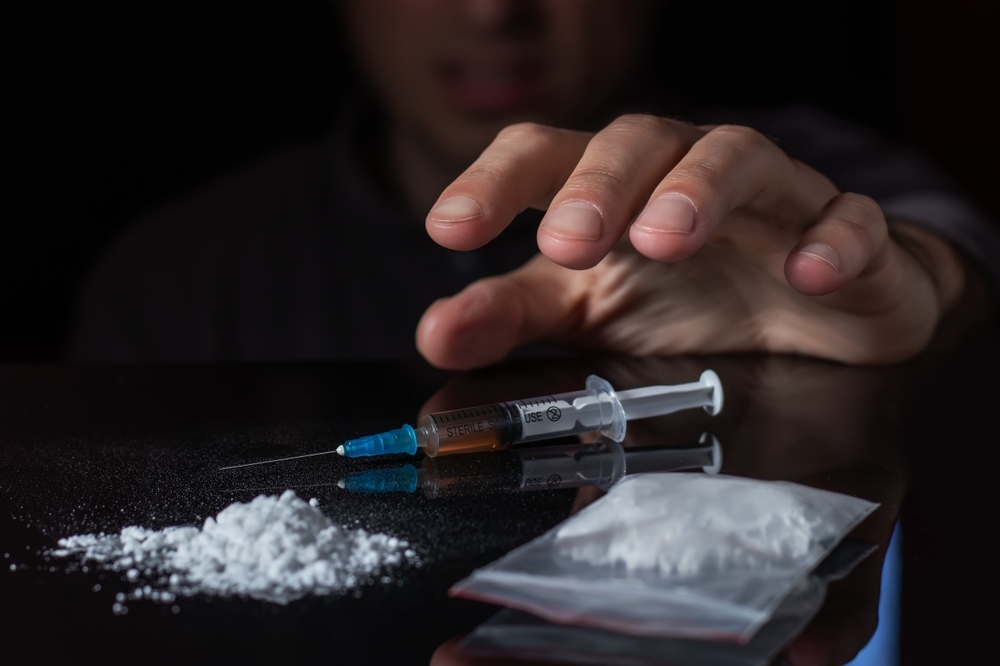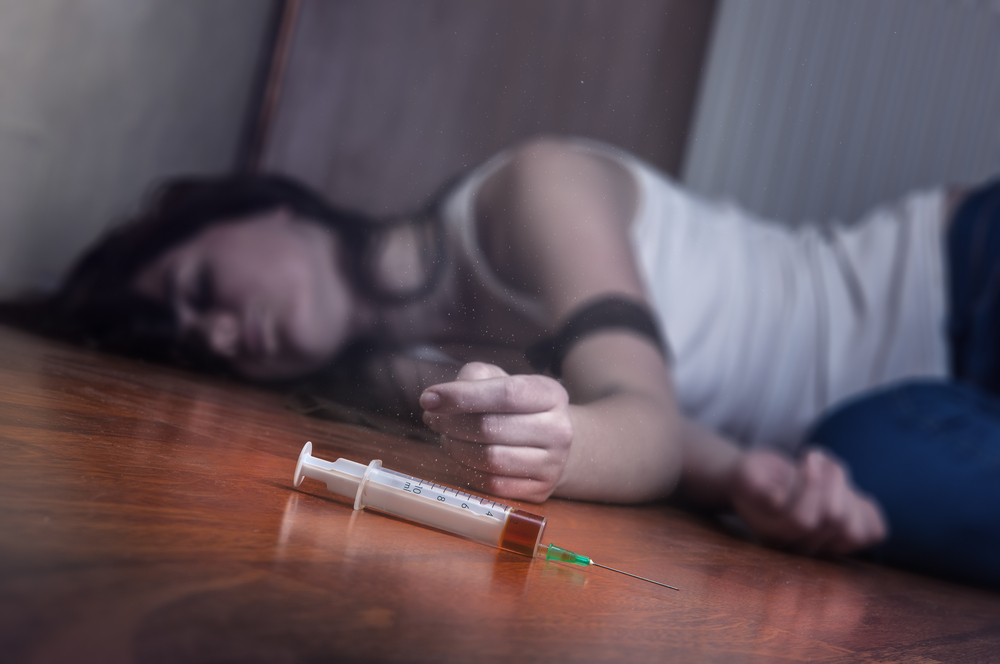Last Updated:
May 28th, 2025
Heroin Detox | Dealing with Heroin Withdrawal
Heroin withdrawal has been portrayed across film and television, most notably in one harrowing scene from the film Trainspotting. While this depiction was exaggerated for shock value, quitting heroin cold turkey on your own can be very uncomfortable and even dangerous. That is why a professional heroin detox is so important for anybody looking to break free from heroin addiction. If you are worried about what this entails, understanding how to detox your body from heroin safely and how symptoms of heroin withdrawal can be safely managed can help put these concerns to bed.

What is heroin detox?
Heroin detox means quitting heroin so that your body can expel the drug and its toxins and begin healing. This may sound easy, but anybody who has tried to quit heroin without professional help knows that it often leads to failure and can even put you in danger.
A medical heroin detox means you give up heroin with professional planning, supervision and guidance. It usually takes place in an inpatient heroin detox centre with both private and NHS options across Britain.
Approaches may vary, but in most cases, heroin will be replaced by heroin withdrawal medication, usually a safer opioid alternative like methadone. This will then be tapered so you take less and less each day until you only need a very low maintenance level and eventually none at all.
What is heroin withdrawal?
Heroin withdrawal describes the range of reactions, or heroin withdrawal symptoms, which occur when you quit or cut down. They are your body’s natural response to the sudden lack of heroin which it has grown accustomed to.
Heroin converts to morphine in your body, which is a powerful painkiller and sedative. After weeks or months of heavy use, your brain forgets that it even functioned without these levels of morphine. This means that when the levels drop, your brain and body need to find a new equilibrium. It is this rebalancing that causes symptoms of heroin withdrawal, which can include:
- Restlessness
- Irritability
- Depression
- Anxiety
- Vomiting and nausea
- Intense heroin cravings
- Insomnia and other sleep problems
- Trembling and muscle discomfort
- Fatigue
- No appetite
- Shakiness and tremors
These heroin withdrawal symptoms can be unrelenting and don’t end until you either:
- Clear all the heroin from your system, breaking physical dependence
- Go back to using heroin
Many people who attempt heroin cold turkey become overwhelmed by these symptoms, and it is why relapse rates are so high with home heroin detox.
How long does heroin withdrawal last?
One of the most frequently asked questions we receive at Addiction Helper is, “How long does it take to detox from heroin?” This is not an easy question to answer because everybody’s experience is a little different. For example, if you have been using heroin for many years and you have other health issues, your heroin withdrawal symptoms are likely to last longer and possibly be more intense than someone who has only recently been addicted.
However, we are able to give a general timeline of heroin withdrawal symptoms so you can have a rough idea of what’s in store:
Continued professional support can stop these heroin withdrawal symptoms from triggering a relapse so you can stay on the right track. For example, some people may take replacement drugs like methadone for years to prevent a return to heroin use. This is decided on a case-by-case basis and requires ongoing discussions with your doctors.
The benefits of professional heroin detox
Even knowing the potential dangers, many people still attempt a home heroin detox, especially the first time they try to quit. This is completely understandable because it can be done privately, doesn’t cost anything and is less daunting than checking in for professional treatment.
Unfortunately, going cold turkey is rarely successful, and the vast majority of people go back to using heroin either during withdrawal or shortly after. Here is how a professional heroin detox centre can help:
A personal heroin detox plan based on your needs
As explained above, heroin withdrawal symptoms and timeline are not the same for everybody. When you are admitted to a professional heroin detox centre, the first thing they will do is give you a complete medical assessment. They are looking for co-occurring health issues, how deeply dependent you are on heroin and anything else that could potentially complicate heroin detox. All of this information enables them to create a personal heroin detox based on your needs. Crucially, this is a fluid plan which can be adjusted as you move through the stages of heroin withdrawal if your needs change.
No access to heroin
It can be very easy to start taking drugs again when heroin withdrawal symptoms become intense. Even people genuinely determined to quit can find themselves defeated and relapsing. At a professional heroin detox centre, there is no access to heroin or other drugs. Instead, you will likely be given a heroin substitute to dampen the severity of heroin withdrawal symptoms and taper your dose slowly.
Emergency medical assistance
Hopefully, you will go through heroin detox without any problems, but just in case, it is crucial to have medical assistance at the ready. Top heroin detox centres have 24/7 doctors and nursing teams to step in if there are any issues which need dealing with. They can offer medication for heroin withdrawal as well as emotional and psychological support.
Ongoing therapy after heroin detox
Heroin detox breaks physical dependence, but once that is done, you then need to heal and rebuild mentally and emotionally. This takes place in heroin rehab, with most recovery centres providing detox and rehab in one comprehensive treatment programme. Being able to undergo both stages of treatment concurrently allows for synchronised support and better chances of successful recovery.

Contact us today for heroin detox advice
Addiction Helper is here to support you in starting your heroin detox today. We’ll connect you with the right programme tailored to your recovery needs. Contact us now to discuss your goals, and let us help you find the best detox options for you.
Our compassionate team are ready and available to take your call, and guide you towards lasting the lasting addiction recovery you deserve.
Frequently Asked Questions
(Click here to see works cited)
- NHS. “Methadone – medicine used to treat heroin dependence.” NHS, 24 March 2021, https://www.nhs.uk/medicines/methadone/. Accessed 19 February 2025.
- UK Addiction Treatment Centres. “Heroin detox | Heroin withdrawal & symptoms | UKAT.” UK Addiction Treatment Centres, 5 December 2023, https://www.ukat.co.uk/detox/drug/heroin/. Accessed 19 February 2025.
- Bluthenthal, Ricky N et al. “Opioid withdrawal symptoms, frequency, and pain characteristics as correlates of health risk among people who inject drugs.” Drug and alcohol dependence vol. 211 (2020): 107932. doi:10.1016/j.drugalcdep.2020.107932

